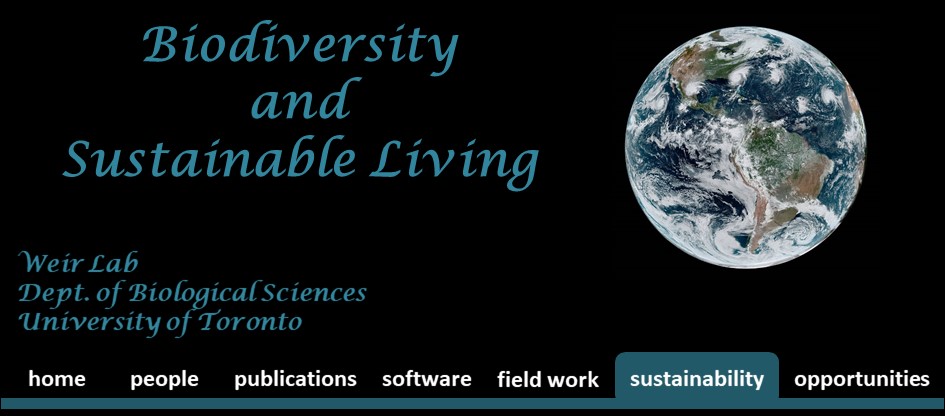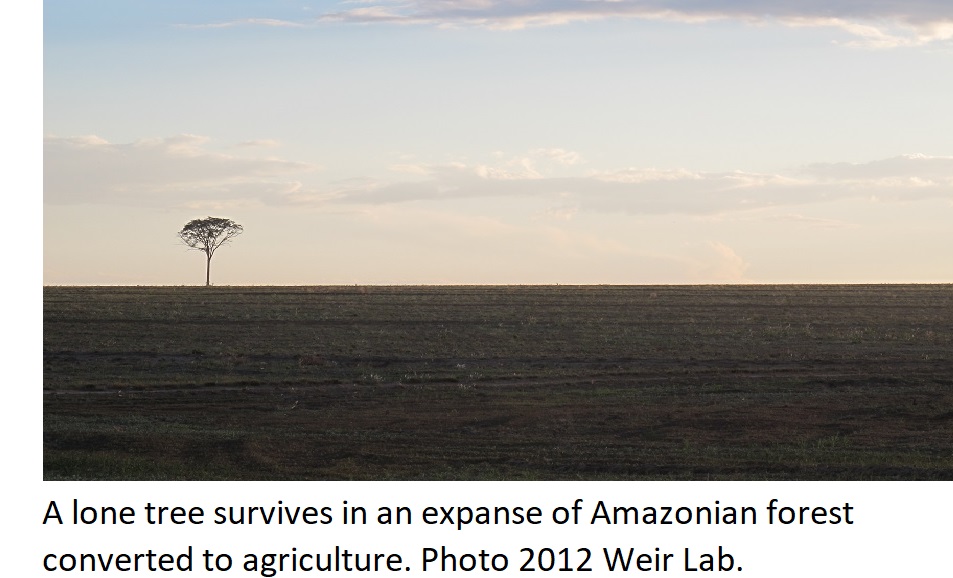
My lab studies biodiversity. We study its evolution, we study its behaviour and now we are unlocking the final frontier of biodiversity, the genomes that encode life itself. But none of this has any meaning if we as a human species continue our current trajectory - a trajectory of unprecedented biodiversity loss.
As the human population explodes, our footprint on this planet is increasingly unsustainably. The inevitable outcome is that wilderness is shrinking.

But we as humans can reverse this trend. We can rewild our planet. We can bring back balance so that we as a species can once again thrive sustainably. The solution is clear enough. To thrive we must reduce our footprint on this planet.
Here are seven proactive suggestions for individuals and families that can radically help to reduce our contribution to the human footprint and to ultimately rewild our planet:
1) Change our mindset: First and foremost, we need to change our thinking, our view of how we as individuals and as societies relate to the natural world. It may have once appeared to our great grandparents that ocean and wilderness were unlimited resources that they were entitled to exploit and prosper from economically. But with the explosion of human population over the past century we are no longer entitled, though notions of entitlement still permeate our society, our corporations and our governments. It is imperative that we now shift our mindsets from entitlement to stewardship and sustainability.
2) Eat a largely plant-based diet: Diets heavy in animal products require much more land than plant-based diets and thus contribute substantially to deforestation and biodiversity loss. I am not suggesting everyone should commit to being vegetarian or vegan, but by reducing the amount of animal products in our diet we can greatly reduce the amount of forest that is being converted to support animal-based proteins. Eating a largely plant-based diet is probably the single highest impact lifestyle change we as individuals can make towards improving the health of our planet.
A great way to increase the plant proportion in your diet is to join a community garden. University of Toronto Scarborough proudly sponsors the UTSC Garden Club in a beautiful setting which will celebrate its 50th anniversary in the spring of 2023.
3) Reduce global population: As couples, commit to producing only one or two children to curb our population growth. Population growth is most problematic in the developing world. If your finances allow, consider contributing to the education of girls in developing nations. Education of women is correlated with a reduction in family size and an improved quality of life.
4) Support clean energy and public transportation: Encourage our governments to phase out fossil fuels in an economically responsible but accelerated fashion and to replace these with clean energy. While coal - one of the worst polluting of the fossil fuels - has largely been phased out for electricity generation in Canada, we continue to harvest and export copious amounts to other nations. As investors we can ensure our investment portfolios are supporting industries than are environmentally sustainable.
5) Reduce plastic consumption: Plastic waste is an excess of our generation and plastics and microplastics now ubiquitously clutter our ecosystems and waterways. Unfortunately, most of our plastic waste that we have been led to believe was being recycled over the past several decades has not been. Developed nations like Canada have simply shipped off their recycled plastic waste to China and other developing nations where a small percentage is recycled and the rest ends up in landfills. In the abscence of proper recycling we can contribute by reducing our consumption of plastic packaging and purchase products that use glass or other materials rather than plastic when possible. We can also use cloth bags when shopping and ensuring our shampoo and other bathroom products do not contain microplastics.
6) Reduce paper consumption: While the forestry industry can be sustainable, I have personally observed devastatingly huge swaths of Canada's boreal forest harvested for paper pulp. Felling of primary forests in Canada, the Amazon and other countries must be halted, and forestry restricted to sustainable harvesting of second-growth forests. Reducing the demand for pulp-based products is a key contribution we as consumers can make towards preserving our boreal forests. This can be achieved in part by recycling as much paper products as possible and buying paper products that are made with recyclable materials. We can also limit consumption of single-use paper products like paper towels and serviettes while reading our news content online instead of in printed form.
7) Flex our consumer muscles: We can make an effort to purchase products that represent sustainable and environmentally friendly options. Flex our muscles by writing to the companies and businesses that are not environmentally friendly and tell them that as a consumer we restrict our purchases to environmentally friendly products. Also, write to those companies we buy environmentally sustainable products from and tell them we support their efforts.
As a professor and researcher, it is my responsibility not only to study biodiversity but also to ensure that my lifestyle choices help to preserve the planet we live on. I commit to personally implementing the above seven lifestyle recommendations to the best of my ability in the hopes that my future grandchildren and their children will know the joy of swimming in a coral reef, of feeling the cold of a glacier's face on a summer day, and of basking in the solitude of unspent wilderness.
Jason Weir